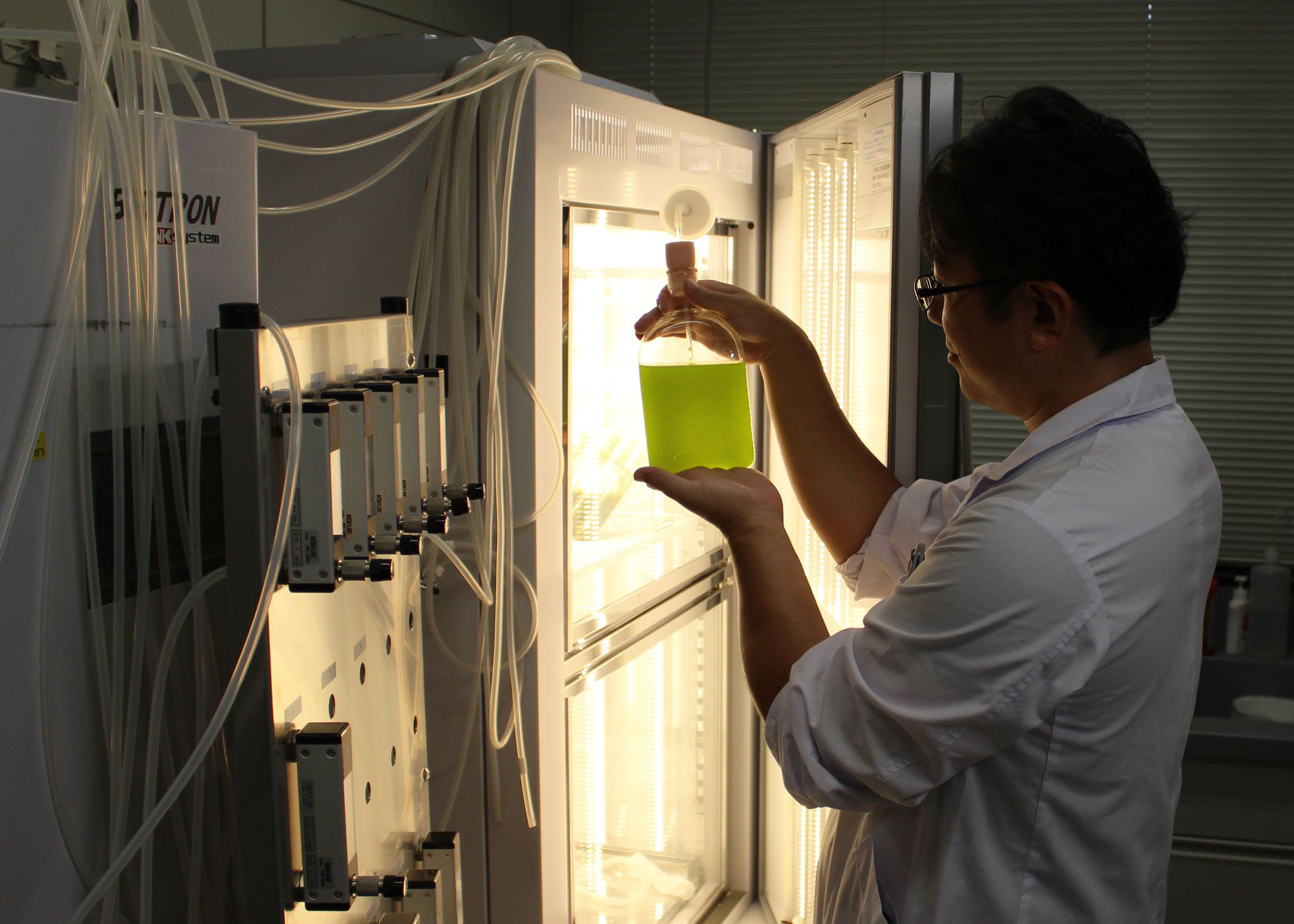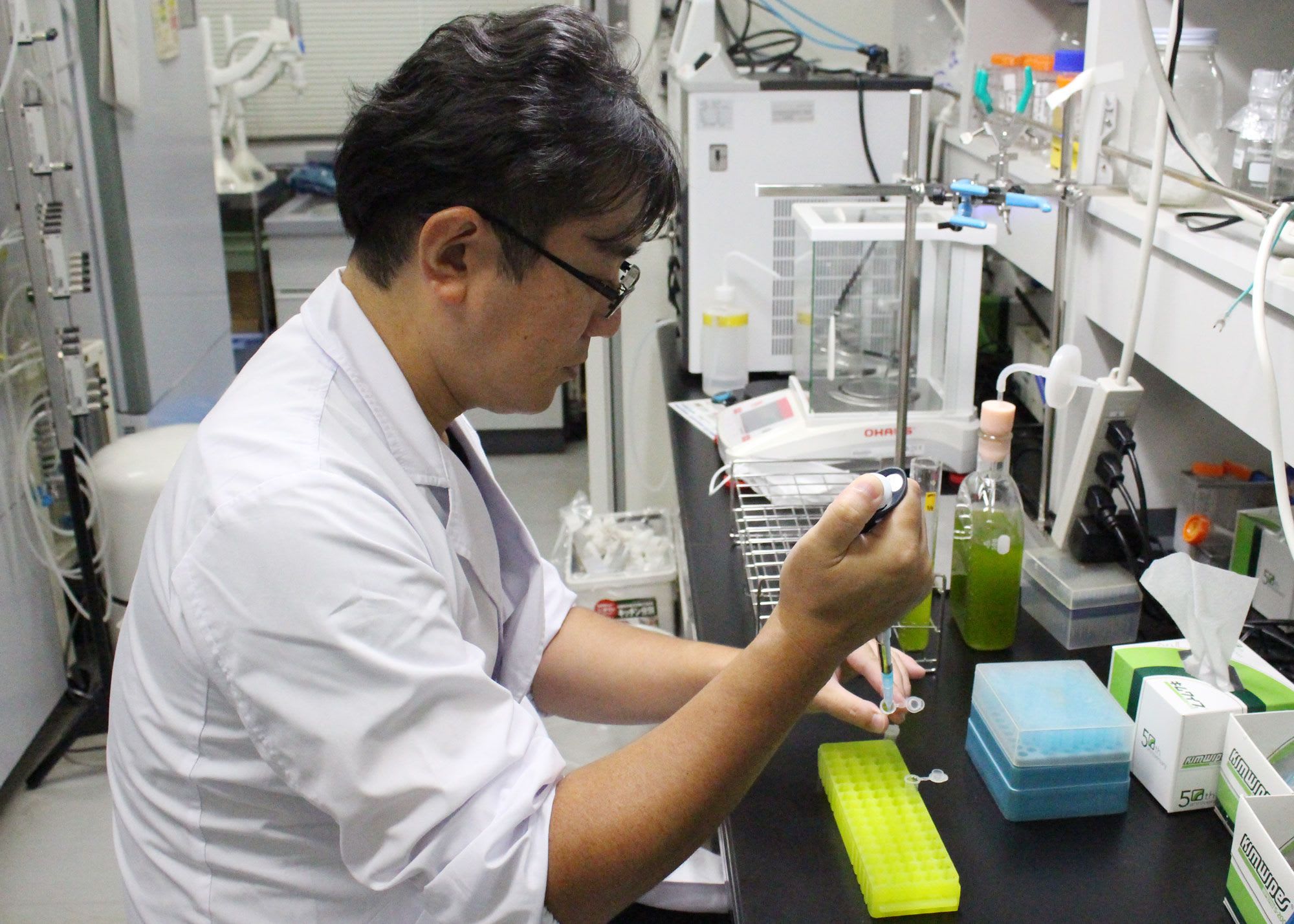A carbon-negative crop that can contribute to the mitigation of climate change, algae are also a viable source of biofuel. Working with Hiroshima University, Mazda is making significant inroads into its future use.
Words Louise George Kittaka
Seaweed is synonymous with Japanese cuisine and has been cultivated since organised farming began in Edo Bay in the mid-17th century. It is also the focus of climate-change-enforced innovation, as farmers look to cross-pollinate varieties to create new crops more resilient to rising sea temperatures.
Seaweeds and other algae can be grown without the need for pesticides and fertilisers, and do not cause any major physical change to the environment. Moreover, they can play an important role in fighting climate change by absorbing carbon emissions and regenerating marine ecosystems. They are also developing a reputation as a sustainable and eco-friendly resource for biofuel production.



















